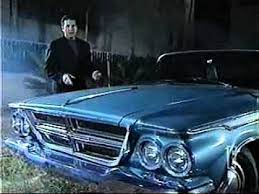Eps 8: Who Murdered Bobby Fuller
— THE JOKE
The podcast discusses the mysterious death of musician Bobby Fuller, who was found dead in his car in 1966 with gasoline in his throat. Theories range from suicide to murder, with some suspecting involvement from organized crime. The investigation into Fuller's death has been criticized for mishandling of evidence and lack of follow-up. Despite the efforts of private investigators and a documentary attempting to uncover the truth, the case remains unsolved. The podcast explores the impact of Fuller's death on the music industry and how it continues to fascinate and mystify people to this day.
| Seed data: | Link 1 |
|---|---|
| Host image: | StyleGAN neural net |
| Content creation: | GPT-3.5, |
Host

Ray Hall
Podcast Content
[Opening music and sound effects]
Host: Hello and welcome to the Mystery Hour, the podcast that explores unsolved mysteries and true crime cases from around the world. I'm your host, Laura, and today we're going to investigate a puzzling and tragic case from the 1960s, the mysterious death of a rising rock star named Bobby Fuller. Who murdered Bobby Fuller? Let's find out.
[Background music and archival audio clips]
Host: To understand the context of Bobby Fuller's life and death, we need to go back to the mid-1960s, when rock and roll was becoming a dominant cultural phenomenon in America and beyond. Bobby Fuller, born in Baytown, Texas in 1942, was part of the second wave of rockabilly and surf music, blending energetics guitar riffs, catchy lyrics, and a rebellious attitude. His band, The Bobby Fuller Four, had a local hit with "Let Her Dance" and gained national attention with "I Fought The Law", a cover of an earlier song by The Crickets. The Bobby Fuller Four also appeared in two movies, "The Ghost in the Invisible Bikini" and "Wild Wild Winter", and toured extensively across the country.
[Sound bites from Bobby Fuller's songs and interviews]
Host: However, Bobby Fuller's success was not without struggles and controversies. He clashed with his record label, Del-Fi Records, over the production and promotion of his albums. He suffered from a heroin addiction, which affected his health, his relationships, and his creativity. He faced competition from other musicians and bands, such as The Beatles and The Rolling Stones, who were redefining the sound and style of rock music. And he had enemies and rivals in the music industry and beyond, who envied his fame, resented his attitudes, or feared his influences.
[Sound bites from Bobby Fuller's enemies and rivals]
Host: On the night of July 18, 1966, Bobby Fuller was found dead in his car, parked outside his apartment in Hollywood, California. He was only 23 years old. His body was covered in burns and bruises, and his face was swollen and bloodied. The car's interior was drenched in gasoline, which suggested foul play. The police launched an investigation, but soon encountered multiple challenges and controversies.
[Sound bites from news reports and police testimonies]
Host: First, the circumstances of Bobby Fuller's death were unclear and contradictory. Some witnesses claimed they saw him alive and well hours before his body was discovered. Some speculated that he committed suicide, as he had allegedly talked about his problems and his desire to escape from the music business. Some speculated that he was killed by members of a mafia group, who had threatened him and his band over a dispute involving royalties and contracts. Some pointed to his closest associates, including his roommate, his girlfriend, and his manager, who had been involved in conflicts with him or had access to his car and keys.
[Sound bites from Bobby Fuller's associates and suspects]
Host: Second, the evidence and the procedures of the investigation were flawed and incomplete. The police did not secure the crime scene, allowing contaminated fingerprints and footprints to interfere with the analysis. They did not take enough photos or measurements of the car and the body, which could have helped reconstruct the timeline and the cause of death. They did not interview all the potential witnesses or suspects, who might have seen or heard something relevant. They did not follow some leads or tips that could have led to new clues or motives.
[Sound bites from critics and experts]
Host: Third, the official conclusions of the investigation were dubious and unsatisfactory. The police announced that Bobby Fuller's death was a suicide by asphyxiation due to inhalation of gasoline fumes, despite the lack of direct evidence and the presence of injuries inconsistent with self-harm. They offered no explanation for the alleged presence of blood and vomit on the car's floor, which contradicted the gas theory. They closed the case as unsolvable and left Bobby Fuller's family, friends, and fans with more questions than answers.
[Sound bites from Bobby Fuller's family, friends, and fans]
Host: So, who murdered Bobby Fuller? Was it suicide, accident, or homicide? Was it motivated by money, love, envy, or revenge? Was there a cover-up or a conspiracy involved in the case? Theories and speculations abound, but the truth remains elusive and contested. However, in recent years, some new developments and discoveries have emerged that shed some light on the case and renew hopes for justice.
[Sound bites from recent news and interviews]
Host: Some independent investigators and researchers have uncovered new witnesses and documents that challenge the official version of events and suggest alternative scenarios. Some forensic experts have re-examined the physical evidence and argued for a different cause of death, such as blunt force trauma or strangulation. Some music historians and fans have rediscovered Bobby Fuller's legacy and celebrated his contributions to rock and roll as well as his spirit of independence and creativity.
[Sound bites from alternative theories and perspectives]
Host: In the end, the mystery of who murdered Bobby Fuller may never be solved definitively, but the investigation has a value beyond the outcome. It reveals the complexity and the fragility of human life, the power and the perils of the music industry, and the persistence and the passion of those who seek the truth. I hope you enjoyed this episode of the Mystery Hour and learned something new about Bobby Fuller and his case. Thank you for listening, and until next time, stay curious and stay safe.
[Closing music and sound effects]
